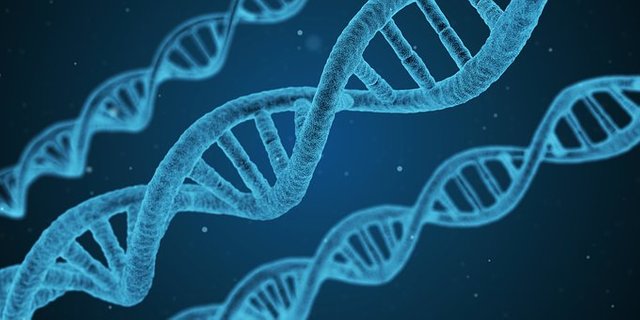Gene Changes and Obesity: How certain chemicals may be contributing to the obesity epidemic
Recent studies are showing that chemicals like nicotine can change a fetus's DNA to predispose him or her to obesity as an adult through a process called epigenetics.
In the past, we could blame our parents for our weight problems because of the eating habits they taught us. Or because of the food they gave us. Now we can blame them for what they exposed us to while we were in the womb.
A slew of new studies cited below show when mom is exposed to certain chemicals while pregnant, her children are more likely to be obese as adults. The current thinking is that these chemicals probably work by programming the fetus’s metabolism to run slower. Someone with a slower metabolism needs less food. Which means that even a normal amount of food can lead to weight gain.
Researchers think that these chemicals probably work by directly changing the fetus’s DNA. When the environment has an effect like this on someone’s genes, it is called epigenetics.
Smoking can make your child obese
One of the most solid examples of this phenomenon is nicotine. A number of studies have shown that women who smoke tend to have children who are more likely to be obese. And it doesn’t look like the obesity is due to other learned behaviors often linked to smoking.
A study by Dr. Levin at Duke University has shown that in rats, the obesity is a direct result of nicotine exposure while in the womb. When pregnant rats are given nicotine, the birth weight of their pups is not affected. But the pups become fatter mice later in life.
Of course, nicotine is “easy” to escape—just don’t smoke. But other similar chemicals are much harder to avoid. Examples of other chemicals that can increase a fetus’s future weight include a barnacle remover (tributyltin) now found at low levels in both seafood and the water supply and an ingredient in plastics called bisphenol A.
How it all works (at least in mice)
Finding out exactly how these chemicals reprogram someone’s metabolism is no easy task. Which is why the study done by Dr. Jirtle in at Duke University on mice was so powerful.
Dr. Jirtle was testing how increased levels of chemicals like vitamin B12 and folic acid in a mother mouse’s diet affects the weight of her adult pups. He found that the extra supplements led to obese mice. And blonde mice too!
This last point is an important one. Because the obese mice went from brunette to blonde, Dr. Jirtle was able to pinpoint the gene involved—the agouti gene. When he looked at the agouti gene, he found the DNA had extra methyl groups, a common way to shut off a gene. The extra supplements led to the shutting off of the agouti gene which caused fatter mice.
There is no evidence that the agouti gene is affected by these other chemicals in people. But we do know that these types of DNA changes can and are passed down to the next generation. If nicotine and all of these other chemicals are working in a similar way, then obesity may be here to stay for many generations to come.
Unless scientists find a way to reverse their effects. A recent study suggests that some food supplements may be enough to counteract the effects of bisphenol A. Perhaps our obesity epidemic will be reversible after all.
Sources:
http://www.nature.com/aj/formerly_published.html#Obesity
https://academic.oup.com/endo/article/147/6/s50/2878376
http://mcb.asm.org/content/23/15/5293.abstract
http://www.geneimprint.com/media/pdfs/1185760530_fulltext.pdf

Thank you, especially for the cites.
Just for being a smarty-pants, I followed you just now.
While I appreciate the contribution, and it's exposure of epigenetics, I would encourage you to link more to sources. Also, epigenetics does not change DNA, it is changes in how DNA is expressed, a subtle, but extremely important difference.
This does NOT establish a link between nicotine and obesity. It establishes a link - and does not establish causality at all - between smoking and obesity. It isn't clear whether something might have caused both smoking and obesity to occur, or whether smoking caused obesity. There are many chemicals, including legacy heavy metals, such as arsenic, used as a pesticide for centuries, and persisting in soils where tobacco is grown, in tobacco products, and there is no indication that any attempt was made to establish a mechanism for the association in that study.
While you next cite work of another researcher and claim nicotine causality is established, you don't link to it, and so it is impossible to ascertain what was actually established, or simply assumed.
I'm not accusing you of anything except leaving me without the ability to verify your claims are what was actually shown in the research. The link to the second study would have assisted in that.
This is particularly important in research regarding smoking, as it has been extraordinarily politicized and propagandized, due the potential liability for innumerable lung cancers caused by radioactive fallout from nuclear tests. Research has been falsified, propagandized, and suppressed for decades in order to conceal this causal link between the USG and the defense industry, and cancer.
While I know there will be outrage over the tenor of my comment in some, I can prove what I say, and it is this ability of moneyed interests to subvert research that makes careful attention to details of published studies, and provision of supporting documentation, of vital importance in interpreting claimed results.
Thanks!